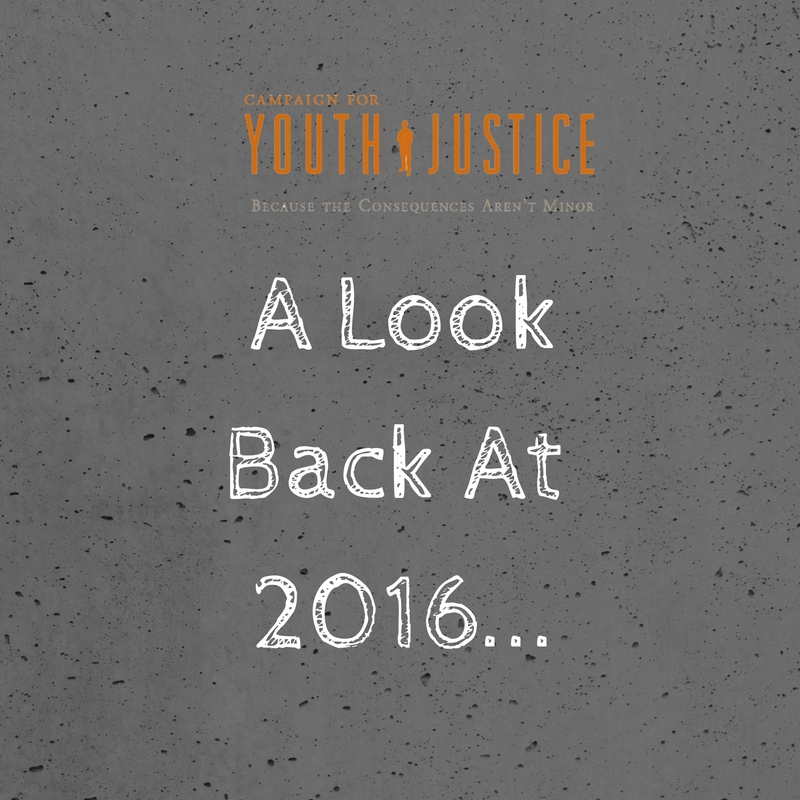Looking Back

2016 was in many ways – let’s face it – a wretched year. But for the work to protect youth from the horrors of the adult criminal justice system, 2016 was actually a pretty good year.
The states of South Carolina and Louisiana passed laws to raise the age of adult court jurisdiction to 18. The states of Vermont and California both ended the practice of allowing prosecutors, without judicial review, to “direct file” juveniles into adult court.
A new law in Indiana will allow some youth charged as adults to transfer back into the juvenile system, and a new law in Arizona will keep some kids charged as adults out of adult jails while they await their trials. And Washington, D.C., included removing youth from adult jails in its Comprehensive Youth Justice Amendment Act of 2016.
In North Carolina, the movement to raise the age of adult court jurisdiction to 18 (it’s currently 16) continued to gather steam. Championed by the state’s Chief Justice, and buoyed by public meetings attended by hundreds of concerned citizens, the North Carolina Commission on the Administration of Law and Justice (NCCALJ) strongly recommended raising the age, a recommendation that has been endorsed by the NC Sheriffs’ Association, and the NC Police Benevolent Association.
And on December 30, Governor Andrew Cuomo of New York (where the age of adult court jurisdiction is also still 16), began the process of pardoning 101 people who had been tried as adults as 16 or 17 year olds, signaling his continued strong support for raising the age in his state.
There were some near misses in 2016 as well. A package of 20 bills to raise the age of adult court jurisdiction to 18, remove youth from adult jails, and make other much needed reforms, passed the House in Michigan, and is likely to move even further once a cost study is completed.
A bill in Alabama that would have ended the practice of jailing young people with adults pre-trial, and would have ended the automatic transfer of juveniles charged with certain crimes into adult court, passed the state Senate.
And in Florida, a bill that would have reduced the use of “direct file” passed unanimously through Senate committees and then, amended into a bill to end automatic transfers, passed unanimously through the Senate.
Federally, the long overdue re-authorization of the JJDPA that would have enhanced protections for young people in the criminal justice system was only prevented from passing because of one obstinate Senator.
Whether this pattern of successes and near-misses in 2016 will carry over into this year is hard to say.
We are in rather unpredictable times.
What is clear is that over the next four years or so, states are likely to be the primary engines of change on this issue. And we know that states like Michigan, New York, North Carolina, Texas, Missouri, and Wisconsin will keep pushing to raise the age of adult court jurisdiction, states like Florida will push to curtail “direct file”, and several states will tackle the issue of the automatic transfer of youth into adult court for certain crimes.
Despite the volatility of the near future, there is no reason to think that a bi-partisan issue like protecting our children from the adult criminal justice system won’t continue to have success in 2017 and beyond.

